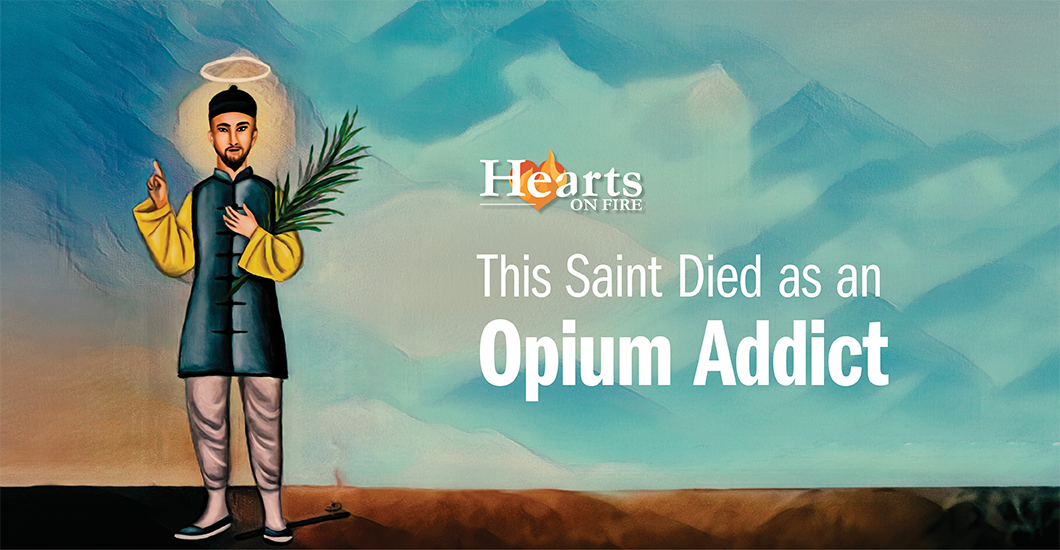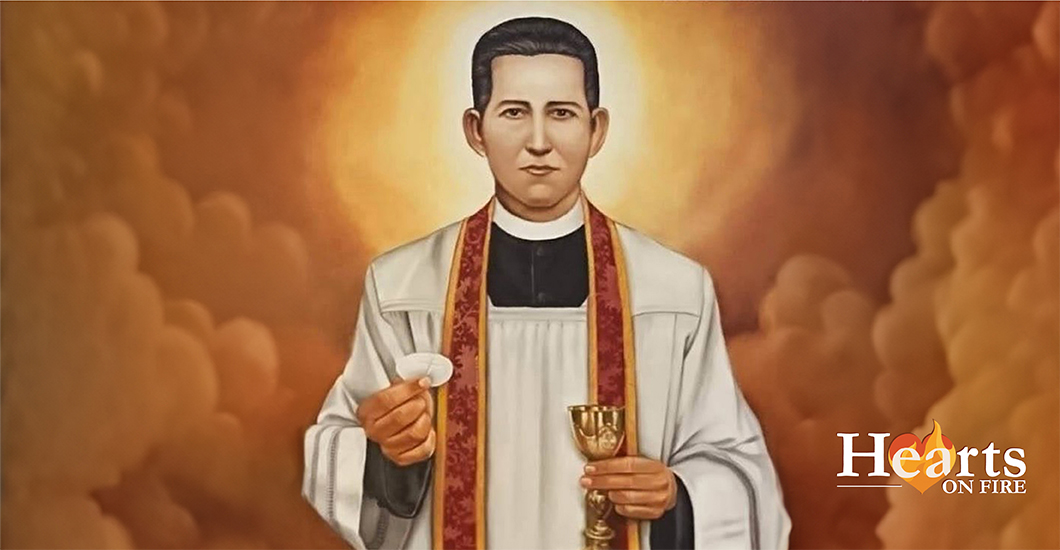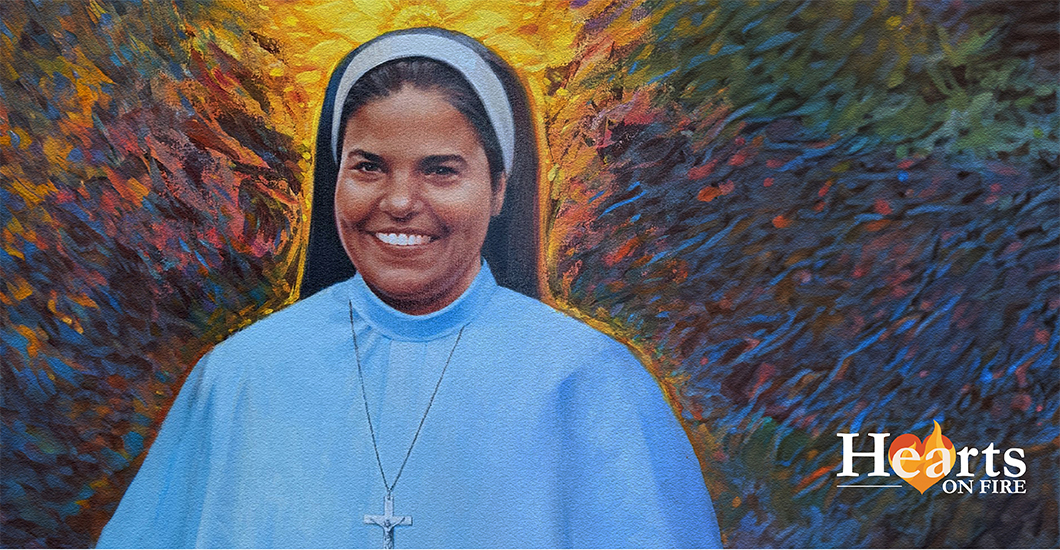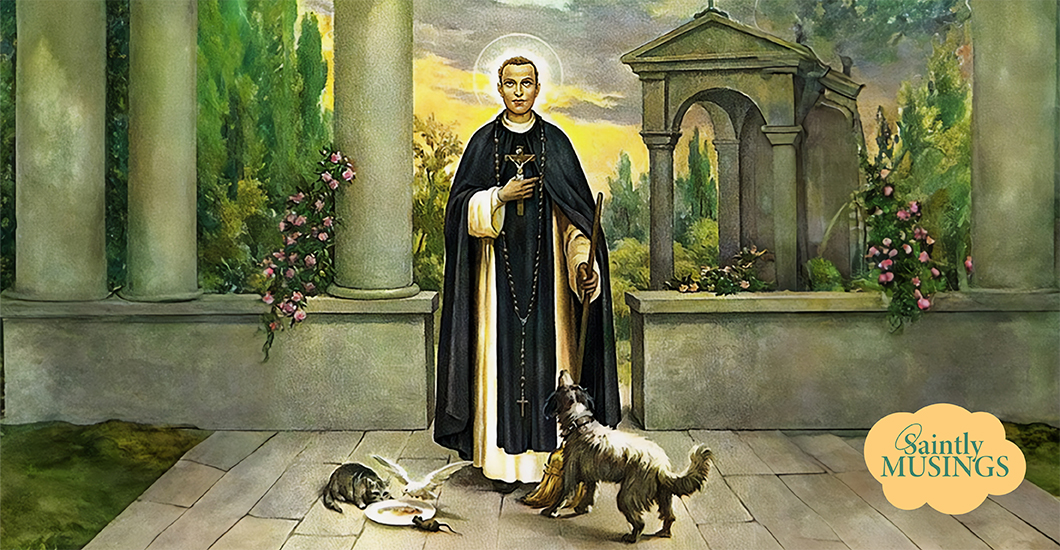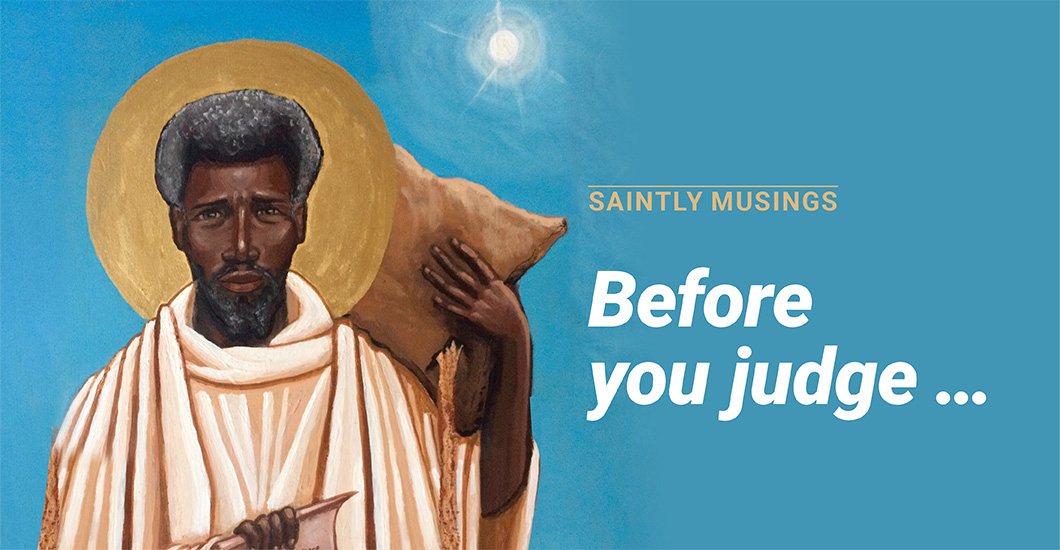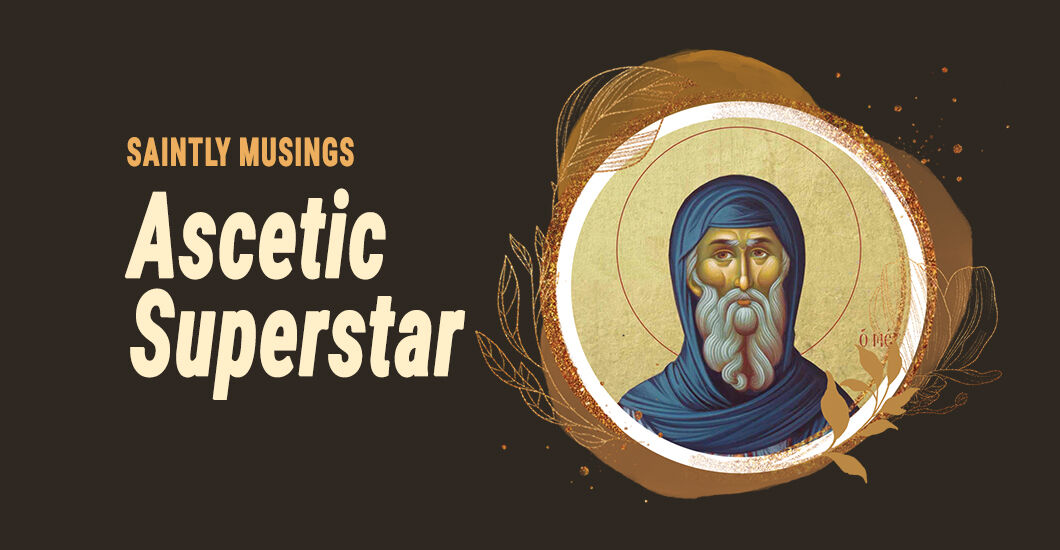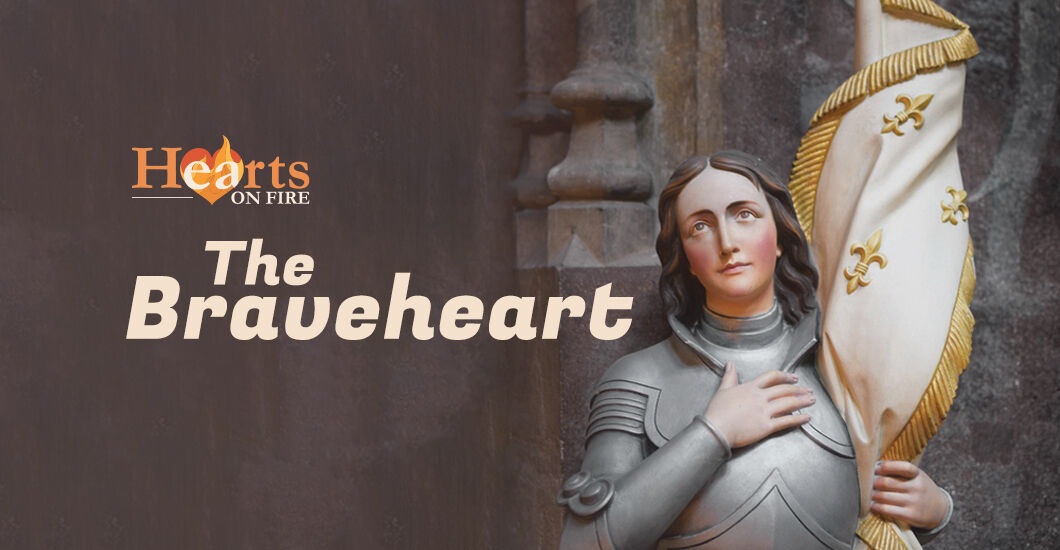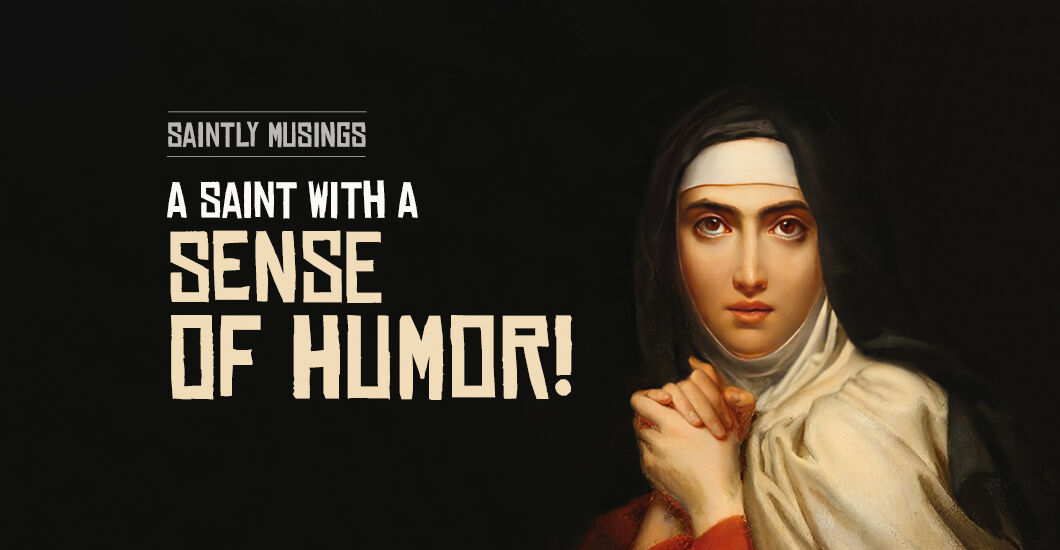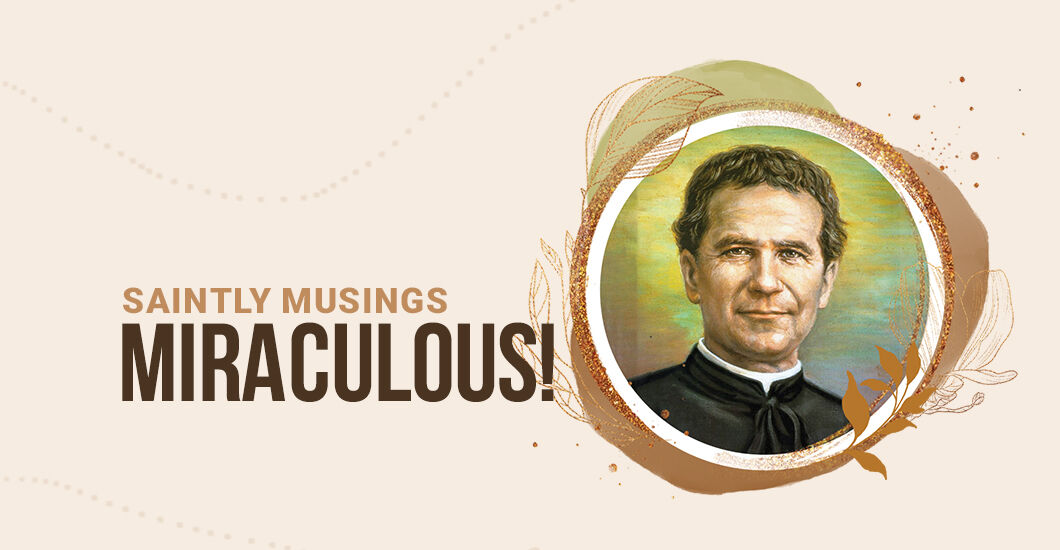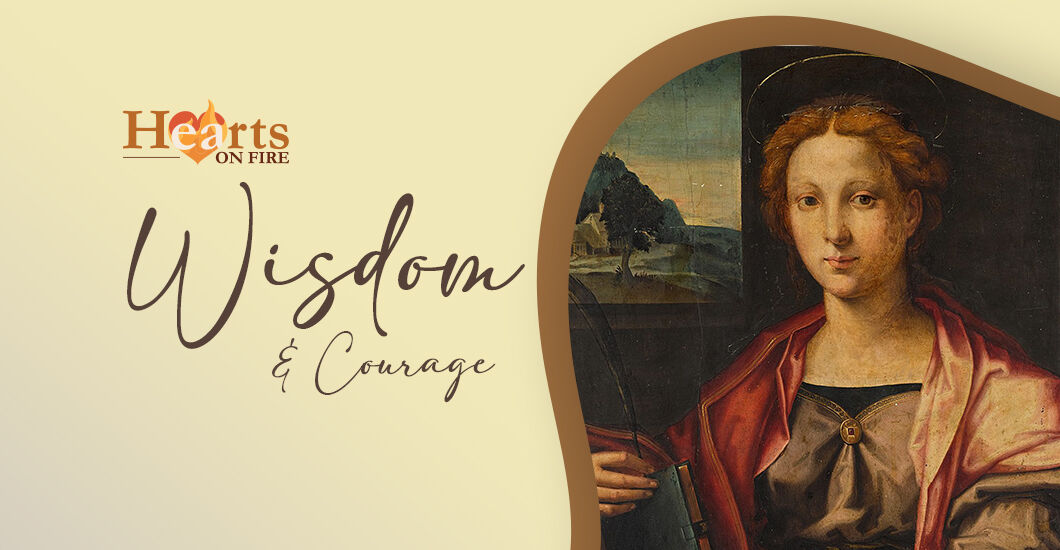Trending Articles
This Saint Died as an Opium Addict
The Chinese Boxer Rebellion in the 1900s killed nearly 32,000 Chinese Christians and 200 Western Missionaries. Among these devoted Christians who gave their life for their faith, Saint Mark Ji Tianxiang stands out because, at the time of his death, he was an opium addict who had not received the Sacraments for 30 long years.
Ji was raised in a devout Christian family, and he was a respected and charitable doctor in his community. Fate be blamed, the opium he took to abate a disturbing stomach ailment took hold over him, and he was addicted to it in no time.
Though he went to frequent Confession, Ji found himself in the grips of a powerful addiction that refused to succumb to any means of resistance. His parish priest and confessor eventually told him that he could not continue to repeat the same sin in Confession anymore. Confession requires a conscious resolve to repent and sin no more, and this repeated sin, in the 19th century, was not understood as an illness. He was henceforth restricted from receiving the Sacraments, but he continued visiting the Church and stayed true to the Lord’s ways. He remained sincere to his faith because He believed in a Merciful Father.
Many assumed that he would be the first to deny the Lord when faced with the threat of persecution. But along with his son, grandchildren, and daughters-in-law, he persevered till the very end. In fact, Ji provided spiritual consolation to his fellow Christians as they were imprisoned and awaiting execution.
Stories record that as they were dragged to prison, his grandson, shaking with fear, asked him, “Grandpa, where are we going?” He calmly and jubilantly answered: “We’re going home.” He went to his death, singing the Litany of the Blessed Virgin Mary. Pope John Paul II canonized him in the year 2000.
Shalom Tidings
Related Articles
The Mexican Revolution which began in the early 1920s, led to the persecution of the Catholic community in that country. Pedro de Jesus Maldonado-Lucero was a seminarian at that time. Once he became a priest, despite the risk, he stood with his people. He tended to his flock during a terrible epidemic, founded new apostolic groups, reestablished associations, and ignited Eucharistic piety among his parishioners. Upon discovering his pastoral activities, the government deported him, but he managed to return and continue serving his flock, in hiding. One day, after hearing the confessions of the faithful, a gang of armed men busted his hiding place. Father Maldonado managed to grab a reliquary with Consecrated Hosts as they forced him out. The men forced him to walk barefoot throughout the town, as a crowd of the faithful followed him. The city mayor grabbed Father Maldonado's hair and dragged him toward the city hall. He was knocked to the ground, resulting in a skull fracture that popped out his left eye. He had managed to keep his grip on the pyx until this time, but now it fell out of his hands. One of the thugs took some Holy Hosts, and as he forcefully stuffed the hosts inside the priest’s mouth, he shouted: “Eat this and see if He can save you now.” Little did the soldier know that just the night before, during the Holy Hour, Father Maldonado had prayed that he would happily give his life for an end to the persecution ‘if only he would be allowed to take Communion before his death.’ The thugs left him for dead in a pool of his own blood. Some local women found him still breathing and rushed him to a nearby hospital. Father Pedro Maldonado was born into eternal life the next day, on the 19th anniversary of his priestly ordination. Pope John Paul II canonized this Mexican priest in 2000.
By: Shalom Tidings
MoreRani Maria Vattalil was born on 29 January 1954 to Eleeswa and Paily Vattalil in a small village called Pulluvazhy, in Kerala, India. From a young age, she was brought up in the Christian faith, having love for the poor. She attended daily Mass and led family prayers. During the final year of high school, Rani felt the Lord calling her to consecrated life and entered the Franciscan Clarist Congregation in 1972. It was Rani Maria’s ardent desire to do missionary work in North India and serve the poor, even if it cost her life. She was sent to Madhya Pradesh (a central Indian state) and served several mission areas there. Sister Rani Maria was given the responsibility of coordinating the social apostolate of the local diocese. She organized various educational programs for children and young people and worked relentlessly to empower the indigenous people. She understood how the poor, illiterate farmers were exploited and taken advantage of by their landlords. So, she educated them on their rights, helped them fight for justice, and spoke for those who were unjustly imprisoned. All this infuriated the upperclass landlords, who threatened her with dire consequences if she continued supporting the cause of the poor. But Rani Maria feared nothing and did not back down from her mission to 'love her neighbor.' A devious plan was then hatched by those who hated her. On 25th February 1995, while traveling by bus, she was mercilessly stabbed 54 times by Samundhar Singh—a man hired by the landlords. She breathed her last, repeating the Holy name of Jesus. Rani Maria worked her entire life to fight for the dignity and rights of her fellow men and bore witness to the Gospel through her social activities. Sister Rani Maria’s family, following the valiant example of their daughter, forgave her murderer wholeheartedly, even inviting him to their home! This act of mercy touched him deeply; he repented of his heinous crime and became a changed man. Sister Rani Maria was beatified by Pope Francis on 4th November 2017.
By: Shalom Tidings
MoreMartin de Porres was born in 16th-century Peru; he grew up facing the stigmas of both his mixed race and illegitimacy. After a barber-medical apprenticeship in his young years, he joined the Dominicans as a ‘lay helper’ and continued his barber work in the monastery. One day, Brother Francis Velasco Carabantes approached Martin, desiring to talk to this man whom people were already starting to believe was saintly. Martin was busy with his barber work; he absent-mindedly grabbed this novice and placed him in the barber’s chair. Brother Francis had no inclination to have his head shaved; he disliked the hairstyle that the Dominicans used. Before he could resist, Martin had finished his job, and Brother Francis was angry beyond expression. He started to shout, calling Martin all sorts of curse words. Martin was lost in prayer, and by the time he noticed that this novice was shouting, one of the rectors had seen the commotion and was scolding Brother Francis, who was severely punished and sent away. Martin, once he came to realize what had happened, went to the rector with all possible excuses. He begged forgiveness for this person who had verbally abused him, trying even to explain away the curse words used. Finally, he told the rector: “Everyone knows what a sinner I am.” The rector, who was aware of Martin’s saintly life, gave in to his request and forgave Brother Francis. Not satisfied with this, Brother Martin even sent fresh fruit, which was a rare delicacy in the monastery, to Brother Francis. How many times have we rejoiced in the ‘just’ punishments that our transgressors received? Let us pray to Saint Martin for the virtue of humility, to forgive and show the other cheek, as Jesus taught us to do.
By: Shalom Tidings
MoreOn a scorching afternoon on the streets of Calcutta, I met a boy… Prayer is an undeniable, central, and key part of every Christian’s life. However, Jesus emphasized two more things which clearly went hand in hand with prayer—fasting and almsgiving (Matthew 6:1-21). During the seasons of Lent and Advent, we are specifically called to commit more time and effort to all three ascetic practices. ‘More’ is the important word. Whatever season we are in, radical self-denial and giving are a continuous call for each baptized believer. Around eight years ago, God literally made me stop and think about it. Unexpected Meeting In 2015, I had the great privilege and blessing of fulfilling a lifelong dream to be with and serve some of the most in-need brothers and sisters worldwide in Calcutta, India, where the poor are described not only as poor but the ‘poorest of the poor.’ From the moment I landed, it was as though electricity was running through my veins. I felt such immense gratitude and love in my heart to be given this amazing opportunity to serve God with Saint Mother Teresa’s religious order, the Missionaries of Charity. The days were long but absolutely action-packed and grace-filled. Whilst I was there, I did not intend to waste a moment. After a 5 AM start to each day with an hour of prayer, followed by Holy Mass and breakfast, we set off to serve at a home for the sick, destitute, and dying adults. During the break at lunchtime, after a light meal, many of the religious brothers I was staying with took a siesta to recharge their batteries, to be ready to go again in the afternoon and on into the evening. One day, instead of having a rest in the house, I decided to go for a walk to find a local internet café, to contact my family by email. As I turned one of the corners, I encountered a young boy aged around seven or eight years old. His face expressed a mixture of frustration, anger, sadness, hurt, and tiredness. Life had already seemed to have begun to take its toll on him. He was carrying over his shoulder the biggest transparent, heavy-duty plastic bag that I had seen in my life. It contained plastic bottles and other plastic items, and it was full. My heart broke within me as we stood silently examining one another. My thoughts then went to what I could give this young boy. My heart sank, as I reached for my pocket, realizing that I only had a small amount of change with me to use for the internet. It added up to less than one pound in English money. As I gave it to him, looking him in the eye, his whole being seemed to change. He was so lifted and grateful, as his beautiful smile lit up his beautiful face. We shook hands, and he walked on. As I remained standing in that back street of Calcutta, I stood in awe as I knew that the Almighty God had just personally taught me such a powerful life-changing lesson through this encounter. Reaping Blessings I felt God had beautifully taught me in that moment that it is not the actual gift that is important but the disposition, intention, and love from the heart with which a gift is given. Saint Mother Teresa beautifully summed this up saying, “We cannot all do great things, but we can do small things with great love.” Indeed, Saint Paul said, if we give away all we have “but have not love,” we gain nothing (1 Corinthians 13:3). Jesus describes the beauty of giving, that when we “give… it will be given to you; good measure, pressed down, shaken together, running over, will be put into your lap. For the measure you give will be the measure you get back.” (Luke 6:38). Saint Paul also reminds us that “Whatever a man sows, that he will also reap” (Gal 6:7). We do not give in order to receive, but God in His infinite wisdom and goodness blesses us personally in this life and also in the next when we step out in love (John 4:34-38). As Jesus taught us, “it is more blessed to give than to receive” (Acts 20:35).
By: Sean Booth
MoreEver heard of a robber who turned into a Saint? Moses the Black was a leader of a band of thieves who attacked, robbed, and murdered travelers in the Egyptian desert. The very mention of his name spread terror in people’s hearts. On one occasion, Moses had to hide in a monastery and was so amazed at the way he was treated by the Monks that he converted and became a monk! But the story doesn’t end there. Once, four of the robbers of his former band descended upon the cell of Moses. He had lost none of his great physical strength, so he tied them all up. Throwing them over his shoulder, he brought them to the monastery, where he asked the Elders what to do with them. The Elders ordered that they be set free. The robbers, learning that they had chanced upon their former ringleader and that he had dealt kindly with them, followed his example: they repented and became monks. Later, when the rest of the band of robbers heard about the repentance of Moses, they also gave up their thievery and became fervent monks. After many years of monastic struggles, Moses was ordained deacon. For another fifteen years, he continued his monastic labors. About 75 disciples gathered around the saintly Elder, who had been granted the gifts of wisdom, foresight, and power over demons by the Lord. Once, a certain brother committed an offense in Scete, the camp of the monks. When a congregation was assembled to decide on this matter, they sent for Abba Moses, but he refused to come. Then they sent the priest of the church to him, imploring, “Come, for all the people are expecting you,” and finally, he responded to their pleas. Taking a basket with a hole in it, he filled it with sand and carried it upon his shoulders. Those who went out to meet him asked, “What does this mean, O Father?” And he replied, “The sands are my sins, which are running down behind me, and I cannot see them. Yet, I have come here today to judge shortcomings that are not mine.” When they heard this, they set that brother free and said nothing further to him.
By: Shalom Tidings
MoreAt the age of 20, Anthony lost his parents and was left with a large inheritance and the responsibility of caring for his sister. About the same time, Anthony happened to hear a reading from the Gospel of Matthew, where Jesus tells a rich young man, "If you want to be perfect, go and sell everything you have and give the money to the poor." Anthony believed he was that rich young man. Shortly after, he gave away most of his property, sold almost everything else, and kept only what he needed to care for himself and his sister. But that’s not exactly what the Lord had commanded! Not long afterward, Anthony was at Mass once again and heard the Gospel passage, “Do not worry about tomorrow; tomorrow will take care of itself” (Matthew 6:34). Again, he knew Jesus was speaking directly to him, so he gave away even the little he had saved, entrusted his sister to the care of some holy women, and entered the desert to live a life of poverty, solitude, prayer, and mortification. In that harsh desert landscape, the devil attacked him in countless ways saying “Think about all the good you could have done with that money you gave away!” Firm in prayer and mortification, Anthony fought off the devil and his manifestations. Many were attracted to his wisdom, and these he encouraged to seek self-denial and the hermetic life. No wonder after his death he became Saint Anthony the Great or Saint Anthony of the Desert, the father of Christian Monasticism. Once a brother renounced the world and gave his goods to the poor, but he kept back a little for his personal expenses. He went to see Abba Antony. When he told him this, the old man said to him, "If you want to be a monk, go into the village, buy some meat, cover your naked body with it and come here like that." The brother did so, and the dogs and birds tore at his flesh. When he came back the old man asked him whether he had followed his advice. He showed him his wounded body, and Saint Antony said, "Those who renounce the world but want to keep something for themselves are torn in this way by the demons who make war on them."
By: Shalom Tidings
MoreFew Saints of the Catholic Church have captured the popular imagination like Joan of Arc. Her story is depicted in paintings, sculptures, and numerous films. Born into a peasant family in 1412, Joan grew up illiterate, but acquired a profound love for the Church and a deep faith in God from her mother. Because she loved prayer and the sacraments, her neighbors said, “She was so good that all the village loved her.” She cared for the sick and homeless, often even giving them her own bed. By the age of thirteen, Joan began to hear the voices of Michael the Archangel, Saint Margaret of Antioch, and Saint Catherine of Alexandria. They told her she was to liberate France and ensure the French heir to the throne was installed as France’s rightful king. She won his trust by telling him details of his past only someone with divine knowledge could know. At the time, France was dominated and ruled by England. Convinced that her “voices” came from God, Joan heroically and faithfully obeyed their instruction, despite obstacles and suffering. Prayer and contemplation remained primary in her life even as she led battles, during which she never raised the sword against an enemy Though two years earlier a commission had “declared her to be of irreproachable life, a good Christian, possessed of the virtues of humility, honesty and simplicity”, Joan was accused of witchcraft and heresy after the English captured her, receiving no support from the very King she put on the throne. At her trial, Joan manifested her deep faith and wisdom, and despite being wrongly condemned, she never lost her faith in God or the Church. When she was burned at the stake, she proclaimed the name of Jesus while holding a crucifix to her heart, causing an observer to say, “We have burned a saint.” Her death increased her fame and popularity. Twenty years later, a new trial declared her innocent of all her alleged crimes. After her reputation grew over the centuries to epic proportions, Joan was beatified in 1910 by Pope Pius X and canonized eleven years later by Pope Benedict XV. She is now the patron Saint of France and one of the Church’s most beloved Saints. Joan’s obedience to God ensured France kept the Catholic faith during the Protestant Reformation while England abandoned it. France remained a solid center of Catholicism from which it would spread to northern Europe.
By: Shalom Tidings
MoreThe river had swelled so high that water covered everything and all sense of where the road or footpath might be was purely a guess. With water everywhere, it seemed foolish to advance, especially in a carriage, for if anyone strayed ever so little off the road, they would perish without a doubt. As her companions panicked, Sister Teresa encouraged them, “As we are engaged in God’s work, how could we die in a better cause?” She then led the way on foot to the convent through the fierce storm. Suddenly she slipped down an embankment and fell squarely into the mud. Instead of complaining or cursing, the irrepressible nun, looked to the sky and quipped, “If this is how you treat your friends, no wonder you don’t have many!” The sixteenth-century Saint and Doctor of the Church, Teresa of Avila, didn’t take herself or this world too seriously and brushed off the little hardships of life with a sense of humor. Her ability to humbly recognize her own faults and need for grace was also tinged with her refreshing humor. In her autobiography, Teresa writes, “Having virtuous and God-fearing parents would have been enough for me to be good if I were not so wicked.” Saint Teresa was also mindful of false piety and once said, “From silly devotions and sour-faced saints, good Lord, deliver us!” A healthy and good sense of humor will keep our head straight and enable us to see the world’s true beauty. Did God say that we need to be “sour-faced” to be holy? So, if you want to become a saint, lighten up, share the joy of the Lord and laugh with your friends like Jesus did.
By: Shalom Tidings
MoreMaria Stardero, a 12-year-old girl, was led by her aunt into the church where dozens of boys were standing about or kneeling in prayer as they waited for Don Bosco to arrive for confessions. As she made her way to a pew, some of the boys noticed that the young girl’s eyes had no corneas and resembled white marbles. When Don Bosco arrived, he asked the girl about her condition. She had not been born blind, she told him, but because of eye disease she had completely lost her sight two years earlier. When he inquired about medical treatment, her aunt began to sob. They had tried everything, but doctors had only one thing to say: “It is incurable!” “Can you tell whether things are big or small?” Don Bosco asked the child. “I can’t see anything.” He led her to a window to see if she could perceive light, but she couldn’t. “Would you like to see?” Don Bosco asked. “Oh, yes! It’s the only thing I want,” said the girl, breaking down in tears. “Will you use your eyes for the good of your soul and not to offend God?” “I promise I will, with all my heart!” “Good,” said Don Bosco. “You will regain your sight.” After recourse to Mary, Help of Christians, Don Bosco recited the Hail Mary and blessed the girl. Then holding a medal of Mary Help of Christians before the girl’s eyes he asked, “For the glory of God and the Blessed Virgin, tell me what I’m holding in my hand.” “She can’t . . .” the elderly aunt began, but Don Bosco paid no heed. After a few seconds, the child shouted, “I see!” Immediately she described the medal in great detail. But when she stretched out her hand to receive it, it rolled into a dark corner. The aunt moved to retrieve it, but Don Bosco motioned her back. “Let her find it to see if the Blessed Virgin has thoroughly restored her sight,” he insisted. Immediately, the girl walked to the dark corner and bent down to retrieve the tiny object. As the many witnesses looked on, awed and profoundly moved, Maria, thanked Don Bosco profusely and with sobs of great joy. Entrust everything to Jesus in the Blessed Sacrament and to Mary, Help of Christians and you will see what miracles are! Saint John Bosco
By: Shalom Tidings
MoreVenerated as one of the fourteen Holy Helpers (intercessors invoked especially against diseases) Saint Catherine of Alexandria is a virgin martyr of the late third century and early fourth centuries. Though there are no primary sources that attest to her life, there are many traditions about her kept alive over the centuries, including the fact that Joan of Arc claimed hers as one of the voices that spoke to her. Born around 287 in Alexandria, Egypt, a cultural and educational center of the ancient world, she was of the noble class and a very gifted student. She embraced Christianity at age 14 after seeing a vision of Jesus and His blessed mother. A precocious young woman, she didn’t hesitate at the age of 18 to challenge the emperor Maxentius when he began to cruelly persecute the Christian community. The emperor was so impressed by her wisdom that, rather than execute Catherine, he ordered her to debate his best philosophers, whom she easily bested. In fact, the philosophers were so taken by her wisdom, that they and some 200 soldiers embraced the faith. Sadly, all were immediately martyred. Frustrated by Catherine’s amazing resilience, the emperor ordered that she be jailed and tortured. But even her brutal scourging did not cause Catherine to give up her faith. So, the emperor tried a novel approach: he offered to marry her and make her an empress. Already wedded to Christ and having dedicated her virginity to him, Catherine refused the emperor. Enraged, the emperor ordered that she be executed on a spiked wheel, an especially brutal means of torture. But when Catherine touched the wheel, it miraculously shattered. Finally, the emperor commanded she be beheaded. Especially popular during the medieval period, devotion to Catherine spread during the crusades and she has remained popular in both the Roman Catholic and Orthodox churches. Celebrated in much renaissance art, Catherine is the patroness of students and teachers, librarians, and lawyers. Her feast is celebrated on November 25. May her courage and her wisdom in accepting death rather than abandoning her faith in Christ inspire us and give us hope. Saint Catherine of Alexandria, pray for us.
By: Shalom Tidings
MoreLatest Articles
Your problem may be big or small, but this DIY is sure to help you out! I am a daddy’s girl. Growing up, I took pride in being called the ‘Captain’s daughter’ (my father was a police officer). My dad taught me my faith in words and in deeds. He was a daily Mass goer, a Rosary pray-er, and an overall virtuous man. A hard worker, he always provided for his family. He was not only my daddy but also my role model, my #1 fan, and my spiritual advisor. Nonetheless, when I was in trouble, it was my mother that I ran to. Indeed, I would rather my mother ‘catch’ me doing something wrong than my father. Perhaps that’s because I could not stand the thought of disappointing my father. More likely, though, it was because my mother was truly understanding and compassionate. And when I did have to tell my father, I wanted my mother at my side as my intercessor. Mom’s Love When I experienced a broken heart, I cried in her embrace. Her sympathetic heart broke with mine. My mother knew how to comfort me. She carried me in ways that were different from my father. My dad lifted me up on his shoulders; my mom cradled me close to her heart. It is this relationship with my mother that makes me realize how important it is to stay embraced in the Immaculate Heart of Mary. By virtue of my Baptism, I am, indeed, my Father’s daughter—a princess, as a matter of fact, for I am a child of the King of kings. And just as I hate disappointing my earthly father, I grieve over all the times I have let my Heavenly Father down. Alas, I must often make use of the Sacrament of Reconciliation to seek forgiveness. Approaching my Father to confess my wrongdoings, I ask my Mother to be by my side. After examining my conscience and before entering the confessional, I pray a Hail Mary. I am counting on my Heavenly Mother to intercede on my behalf and to help me use the graces our Lord will send me so I can avoid sin in the future. Like my Father, Mother Mary only wants what is best for me. Whether I have a little problem or a big dilemma, I turn to Mary by praying the Rosary. It is a powerful tool that helps me determine God’s will and then gives me the strength to do it. Sometimes, I pray a whole Rosary for a specific intention. Often, though, each decade has its own little need that I present to Our Lady for her intercession. Saint Therese of Lisieux assures: “In trial or difficulty I have recourse to Mother Mary whose glance alone is enough to dissipate every fear.” Hence, when friends and family ask for my prayers, the Memorare is my go-to prayer. I entrust their cares to our Mother, knowing that she will obtain from Her Son what is best, just as she did at the wedding feast at Cana. My Sweetest Resort In the exhaustion of motherhood, raising nine children, I turn to Mary for inspiration and encouragement. Many Hail Marys are prayed throughout my day! As my children get older, they go off into the world without me–to school, college, on trips, and to start their own lives in their own homes–I ask Our Lady to accompany them when and where I can’t. It gives me peace and a blessed assurance knowing that She will keep an eye on them. At noon, I have my alarm set to remind me to stop and say the Angelus prayer. It doesn’t take long, but it helps me to keep focused. It is kind of like calling your mom in the middle of the day just to say: “Hi!” and let her know that you love her. Loving my Heavenly Mother doesn’t mean I love God any less, just as loving my mother doesn’t mean my affection for my dad diminishes. On the contrary, loving one only increases my love for the other. Love is never divided; it can only be multiplied. Saint Maximillian Kolbe declared: “Never be afraid of loving the Blessed Virgin too much. You can never love Her more than Jesus does.” So, run to your Mother.
By: Kelly Ann Guest
MoreAll you have to do is trust in Him and wait patiently. I was recently sitting in front of my computer, ready to install a new update. The loading bar appeared, and I thought: How often do we feel like this in our lives? We wait without knowing if things are progressing. Minutes passed, and I became impatient. Should I cancel? But something was holding me back—a faint hope that there was more going on in the background than I could see. And sure enough, suddenly, the bar jumped ahead. Patience Is the Key This little experience opened my eyes—This is exactly what hope feels like. Our lives often resemble a loading beam. We wait for things to clear up, for prayers to be answered, or for hard times to end. But how quickly do we become impatient and want to stop the installation because we think it won't go any further! Hope is the strength to let the process run its course, trusting that something good is being prepared. "You also must be patient. Strengthen your hearts, for the coming of the Lord is near.”(James 5:8) In our hectic world, which expects quick solutions, accepting God's seemingly slow pace is challenging. But hope means letting the loading bar continue to run, even if the progress is not visible. God is working in the background, like a system receiving a complex update. Even if the screen remains dark, we can trust that He has everything under control. Mediator of Hope Mary, the mother of hope, lived a life full of loading beam moments. Her "yes" at the Annunciation set the divine plan in motion, but she had to wait for the birth of Jesus, for His public ministry, and finally for the resurrection after Golgotha. She lived the waiting with a faith that knew that God's plan would unfold, even if she did not fully understand it. This is how she became the mediator of hope for all humanity. She teaches us that hope is the patience to hold on to God's promises, even when the ark seems to stand still. It is not about understanding every detail but about trusting that God is completing good work in us. "For surely I know the plans I have for you, says the Lord, plans for your welfare and not for harm, to give you a future with hope." (Jeremiah 29:11) The question remains: Where is our loading bar? Will you trust that progress will continue, even if it is sometimes invisible? God's update for your life is already in progress! At the end of this process, the fullness of His glory will give you new life. God does not forget us: "Remember, I am with you always, to the end of the age." (Matthew 28:20) Come, Lord Jesus, and complete Your work in us! Lead us step by step to the goal of your glory!
By: Father Philipp Isenegger
MoreDo you know how to battle the storm that obstructs your way? We all want control and we all want freedom. We want to be able to grasp the course of our lives. It is easy to fall into the trap of desiring this control we can never have. We cannot go back and change the past, and we cannot direct the future exactly as we please. It is also too easy to reduce this desire to a lack of trust in God or a lack of concern for His own will, but often, we may desire this control because we think it will help us serve God best. We get sucked into a cycle of worry because we are trying to please God. But do we stop to see what He has to say about such a thing? Tormenting Past As a university student, I find myself too often worrying about doing everything right. I am actively trying to discern God’s will for my life during such a pivotal time (which, of course, is a good thing), but sometimes to the point that I am too worried if I am failing to properly follow His will or if I am seeking to control and direct my life instead of letting God lead. The irony here is clear retrospectively but can be unnoticeable at the moment. I find myself stressing about the past, wishing I could go back and find answers to the problems I both endured and created. The result is a cycle of painful questions–Why did I say that? Why did this person do this? What does it all mean? Did I learn the right lesson? Why did somebody else get something I wanted? I am always trying to find a solution, trying to take back control, trying to figure out what others are doing right that I am not. But sometimes, all we need to do is let go. Recently, I attended a Sisters of Life* retreat where we learned about imaginative prayer, a spiritual exercise where you use your imagination to place yourself in a scene and let God speak to you. At the same time in my life, I was preparing for training as a sailing instructor, another thing that left me worried as I sought to predict how the course would turn out. Would I succeed? If I didn’t, all my summer plans would be ruined, and I would have no job. What would I do then? What if the other trainees passed and I didn’t? The Bible story my imagination immediately turned to was the story of Jesus calming the storm on the ocean while the disciples were in the boat. I placed myself into the scene. Sailing through the Storm I vividly saw in my mind the boat I had always grown up sailing, the harbor where I spent countless hours practicing, and I saw the storm I had been caught in my first days sailing all those years ago. When the wind is powerful enough, it fills the sails and tilts the sailboat to its side. The skipper must lean back over the side to flatten the boat or release the mainsheet (the rope used to control the sails), all while continuing to clutch the tiller (steering instrument) and direct the boat with just one hand. Fighting currents and fighting wind, it takes all your strength and willpower as the waves are splashing over the side and the wind whips your eyes, bringing you to tears. Fighting to hold onto everything and prevent the boat from flipping over can become an impossible task. It was then, in my prayer, that Jesus began to walk across the water toward me. He reached out His hand for me to grasp. If I reached for His hand, I would have to let go of one of the controls I was using to keep my boat moving. I continued to cling to the mainsheet and the tiller, my hands cramping, the wind tearing my eyes and my hair, leaning back so far that my back nearly touched the water in an impossible gymnastic move. He waited for me. I let go of the rope holding the sail and took His hand. It was then that the pressure on the sail from the wind was released. The boat slowed and flattened until it came to a stop and merely bobbed in the waves, sails flapping in the breeze, with no risk of tipping over. Jesus climbed into the boat. Offer it up Like a patient, loving Father and friend, He directed me when I was ready to take up my course again and keep going now that the pressure and anxiety were released. Sometimes, we don’t have to keep trying to find a solution, fighting to hold everything together, sometimes, all we need to do is let go of the past, our problems and give them to God. Then, we'll just need to take up our course and begin again. After having the time for that prayer, I attended Mass, and the homily confirmed the message placed in my heart. The Gospel was about when Peter asks Jesus what is going to happen to John, and Jesus replies: “What concern is it of yours?” The priest emphasized how Peter’s path was very different from John’s. Jesus not only told Peter not to worry about John but also clarified who he should focus on; He said: "You follow Me.” Peter, of course, went on to be the leader of the Church and now has the most famous basilica in Rome named after him. The week following the retreat, I had my sailing training and not only passed but also was offered a job opportunity for future summers. What was I so worried about? That, along with the other problems and mistakes of the past that I was clinging to, just needed to be let go of to find peace. This does not mean avoiding dealing with problems at all; rather, it allows us to take a step back before returning to the situation, and often, a solution reveals itself. Sometimes, it does mean letting go of problems we cannot solve, like questions about the past or the future. Jesus wants to bear our burdens with us. When we place our trust in Him and leave our worries at the foot of the Cross, solutions are inevitable. *Sisters of Life, based in North America, is a Catholic religious community that follows Augustinian rule and promotes pro-life.
By: Sarah Barry
MoreI’m no longer trapped…I found my way. Living with Complex Post-Traumatic Stress Disorder (CPTSD) is an ongoing journey that has greatly shaped my relationship with God and deepened my faith. For many years, I was tormented by nightly nightmares, a relentless reminder of past traumas that seemed inescapable. My sleep was frequently interrupted by vivid and distressing dreams that left me emotionally drained and spiritually desolate. However, a pivotal moment in my life—my Baptism—marked the beginning of a significant transformation. The nightmares ceased, but my journey of healing was far from over. CPTSD, unlike its more widely recognized counterpart PTSD, arises from prolonged exposure to trauma, often during childhood. There is no cure—just the management of symptoms. This condition manifests in various ways—emotional flashbacks, hypervigilance, chronic feelings of emptiness, amnesia, and an impaired sense of self. For me, these symptoms translated into a constant state of anxiety and a pervasive sense of disconnection from the world around me. Yet, amidst these challenges, I came to see how this condition has made me uniquely aware of my own emotions and deeply empathetic and protective towards the struggles of others. Signs & Symptoms When the nightmares stopped after my Baptism, I felt that a heavy burden had been lifted, and I could finally rest. In fact, the very first words I heard God speak over me immediately after my Baptism was: “I will give you rest.” This miracle was a tangible sign of God's grace and a testament to the power of the sacrament. However, while the most debilitating symptom was alleviated, other symptoms persisted, which I believe were opportunities to draw closer to God. The phrase: "I will give you rest" (Matthew 11:28) is commonly interpreted as an invitation to physical rest, a respite from the demands and labors of daily life. In this context, it resonates with those who are weary and burdened, promising them a moment of peace and tranquillity. However, a deeper exploration of this passage reveals that its meaning can be understood more as an invitation to find spiritual rest in God, even amidst the most turbulent times and challenges of life. The imagery of rest as a spiritual state can be likened to the experience of a warrior in battle. In the heat of conflict, a soldier may not find literal rest, but through faith and reliance on God, they can experience a sense of peace and assurance. It means that even when we are engaged in the battles of life, we can find a deep-seated rest in God’s presence that transcends our circumstances. When we consider the life of Jesus, we see that He experienced extreme challenges and turmoil, yet He was able to remain at peace. Mark 4:35-41 recounts the story of Jesus calming the storm. While the disciples were terrified by the raging winds and waves, Jesus slept peacefully in the boat. His calm amid the storm serves as a powerful illustration of what it means to rest in God. When He woke up, He rebuked the wind and the waves, demonstrating His authority over creation and teaching us that true rest is not the absence of storms but the presence of Christ in our lives. Fighting with Hope In times of personal battle—whether it be battling the remnants of trauma, confronting fears, or facing life’s uncertainties—finding rest in God means choosing to lean on Him for strength, guidance, and reassurance. It involves surrendering our anxieties and burdens to Him, trusting that He will provide what we need to endure and overcome. The rest He offers is a deep peace that can coexist with our struggles, allowing us to navigate life's challenges with hope and resilience. Furthermore, the call to rest in God invites us to cultivate a deeper relationship with Him, one that transforms how we engage with our circumstances. When we actively seek His presence in prayer, scripture, and community, we begin to experience the essence of that rest. It becomes a source of strength that carries us through difficult times, empowering us to face our battles with a renewed spirit. The journey towards healing is not a straightforward path, but it is filled with moments of grace and encounters with God’s love. I believe that God has a purpose for allowing my condition to persist; I understand that my weaknesses are a conduit for God’s strength. If I were completely healed, I might be tempted to rely solely on my own strength and drift away from the closeness I now share with God. My struggles are a blessing that keep me grounded in my need for God’s grace, reminding me of His constant presence in my life. In the words of Romans 5:3-5: "We also boast in our sufferings, knowing that suffering produces endurance, and endurance produces character, and character produces hope, and hope does not disappoint us, because God’s love has been poured into our hearts through the Holy Spirit that has been given to us." My journey with CPTSD is a testament to the enduring hope and transformative power of God's love.
By: Fiona McKenna
More